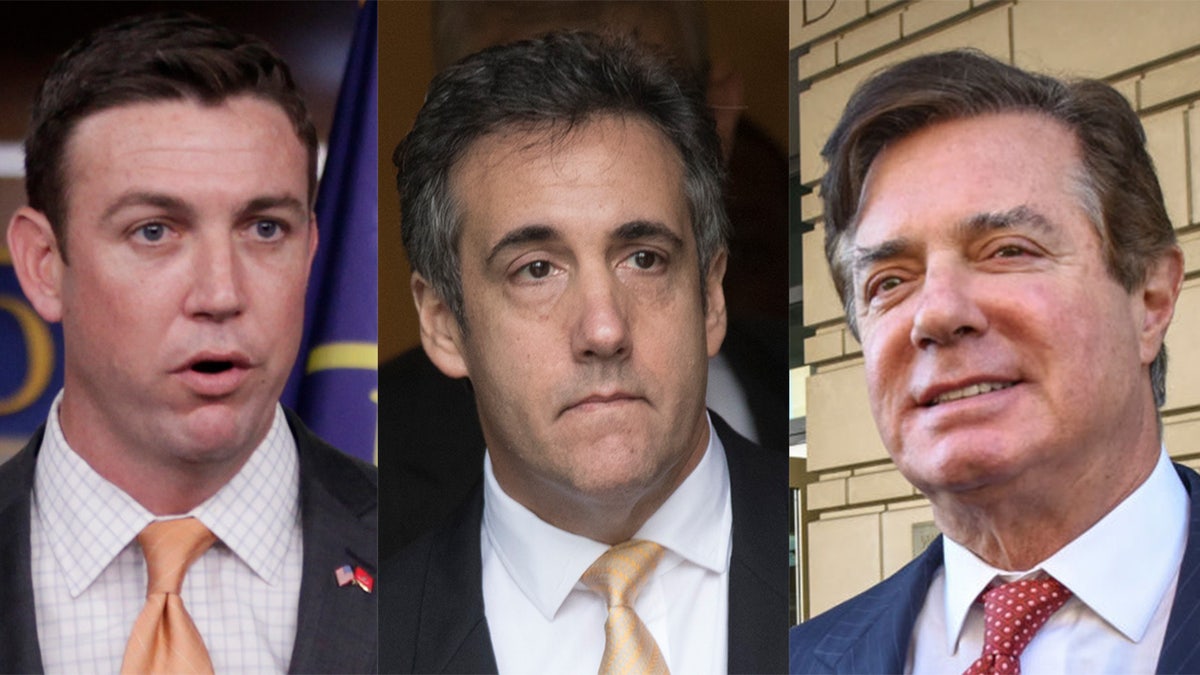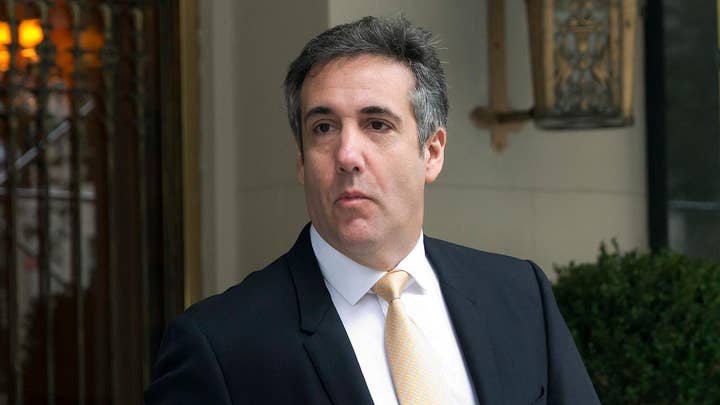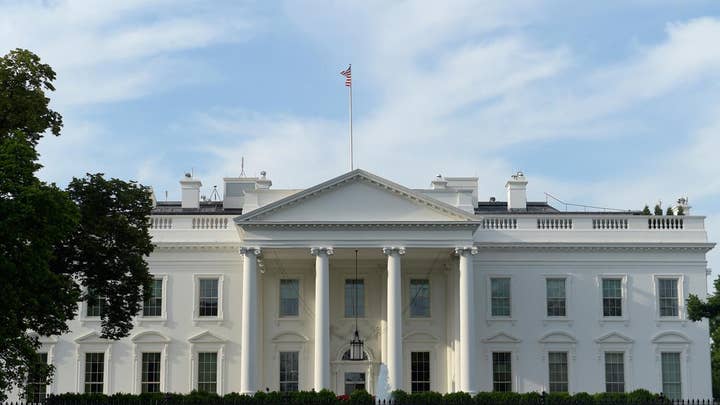
On Tuesday, Rep. Duncan Hunter, R-Calif., was indicted for allegedly using campaign funds for personal use, left; Michael Cohen, middle, pleaded guilty to tax evasion, as well as violating campaign finance law; and Paul Manafort, right, was convicted on 8 counts. (AP/Getty)
History may not repeat itself. But it sure does rhyme.
The war in Iraq wasn’t going well in the fall of 2005 and early 2006. A federal grand jury indicted top White House aide Scooter Libby. House Majority Leader Tom DeLay, R-Texas, faced an indictment and was forced to step aside from his leadership post. DeLay aides Tony Rudy and Michael Scanlon encountered criminal charges in the Jack Abramoff lobbying scandal. So did Rep. Bob Ney, R-Ohio. Ney went to jail. Rep. Duke Cunningham, R-Calif., resigned and did time after pleading guilty to bribery and fraud charges.
But none of that quite sealed the deal for the rival party in the midterms.
Then, word surfaced on the final two days of September 2006, that Rep. Mark Foley, R-Fla., sent inappropriate text messages to male, teenage House pages. The Foley news erupted in the final hours of Congress trying to wrap up work in Washington and head home to campaign for the midterm elections.
Voters awarded Democrats both the House and Senate that November.
It’s unclear that if in November, we’ll look back at Aug. 21 the same way we viewed the final days of September, some 12 years ago. But the potential is there.
In the span of three hours, a federal jury convicted former Trump campaign manager Paul Manafort. Former Trump attorney and fixer Michael Cohen pleaded guilty to another set of charges. Then the feds indicted Rep. Duncan Hunter Jr., R-Calif., and his wife Margaret Hunter on charges of using campaign funds for personal expenses.
After the Manafort and Cohen stories, one could almost frame the Hunter story in the category, “And in other news ...”
The charges against Hunter have nothing to do with what went down involving Manafort and Cohen. But it’s noteworthy that Hunter was one of President Trump’s earliest and most-enthusiastic supporters in 2015 and early 2016. This is back when there were only a few Republicans on Capitol Hill getting behind the president. Hunter was among them.
This wouldn’t be so interesting if it wasn’t for the fact that authorities also just arrested Rep. Chris Collins, R-N.Y., on insider trading charges two weeks ago. Like Hunter, Collins was one of the president’s other original congressional supporters. The Collins charges aren’t related in any way to Hunter and are in no way linked to anything with Manafort and Cohen.
But, as they did in 2006, people may just look at the chaos and pull the lever the other way.
Collins isn’t seeking re-election. That seat could now be in play because Republicans can’t pry him off the ballot.
Hunter’s attorney Gregory Vega wrote a letter to a favorite GOP whipping boy, Deputy Attorney General Rod Rosenstein. Vega argued that the Justice Department was “rushing to indict Congressman Hunter.” Vega asserted the indictment was “politically motivated” because of Hunter’s early endorsement of President Trump. As a result, Vega contends the indictment means “a solidly Republican district is being handed to a Democratic candidate.”
Hunter’s counsel wasn’t the only one talking Tuesday. So was Cohen’s attorney, Lanny Davis.
“Today he stood up and testified under oath that Donald Trump directed him to commit a crime by making payments to two women for the principal purpose of influencing an election,” said Davis of Cohen. “If those payments were a crime for Michael Cohen, then why wouldn't they be a crime for Donald Trump?”
Now, let’s step back for a moment.
Storms have churned around Trump for a long time. In 2016, Democrats and pundits thought there was no way he could win. He was coarse. There was the "Access Hollywood" tape. You name it. And yet Trump sits in the White House.
In other words, all of the customary issues that could imperil a lot of politicians don’t seem to affect Trump. His approval ratings have even been on the rise of late. There’s chatter about a Democratic “wave” this fall. But no one is really sure.
If we adopt the 2006 model, Republicans are probably toast. Democrats would claim the House -- by a lot -- and maybe even win the Senate. When Democrats earned control of the Senate in 2006, they did so by picking up six seats, marshaling a 51-49 edge. If Democrats have any chance of controlling the Senate this fall, they’ll do it by a seat or two at best.
But, history doesn’t necessarily repeat itself. So, be careful when suggesting that the events of Aug. 21 offer keen insight on the midterm elections.
Yes. Democrats may do great and pick up a bunch of House seats in Pennsylvania and California come November. But there are too many uncertainties about seats in play in Virginia, Texas, New Hampshire, North Carolina, Nevada and Minnesota.
A day like Aug. 21 may yield some clues to the midterms. But not everything.
Lots can still happen.
Somewhere, brewing out there, is an “October Surprise.” Some morsel of information which could tip the midterms one way or the other.
Consider the possibilities:
It’s hurricane season. The devastation of Hurricane Katrina in 2005 contributed to the Republican downfall in 2006.
School is back in session or will be soon. The left organized after last winter’s shooting in Parkland, Fla. Another mass shooting just before midterms could influence voters in November.
The international stage is far from settled. Big issues percolate with Russia, Turkey, Iran, North Korea and Syria. No one can ever rule out an international crisis.
And you just never know what Trump may say or do.
“He'd better not talk about pardons for Michael Cohen or Paul Manafort tonight or any time in the future,” warned Senate Minority Leader Chuck Schumer, D-N.Y., as the president headed to a campaign rally in West Virginia.
Sen. Patrick Leahy, D-Vt., argued that the “backlash” of pardon talk for Manafort or Cohen “would have Watergate written all over it.”
Still, this isn’t 2006. Or 1974, for that matter. The convergence of things that doomed the Republicans in 2006 may be immaterial this year.
But it sure does rhyme.
Capitol Attitude is a weekly column written by members of the Fox News Capitol Hill team. Their articles take you inside the halls of Congress, and cover the spectrum of policy issues being introduced, debated and voted on there.














































